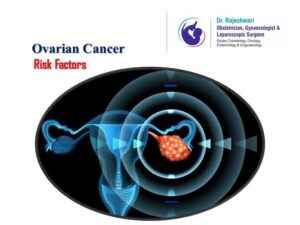Vaginitis (Vaginal Infection) | Causes and Symptoms
Normal microbial flora of the vagina ensures that no outside microbes will gain access into the vagina and cause infections. However, when there is an imbalance of the normal microbial flora (bacteria and yeast) pathogenic bacteria gain access and cause vaginal infections. Vaginitis is the inflammation of the vagina. There could be several reasons for this condition, but usually bacteria, protozoa or yeast could be the culprits. The condition may get aggravated by some chemicals, soaps or sprays or even clothing – which when comes in contact with the affected area can cause inflammation and irritation of the delicate skin and tissues. Whatever may be the cause of vaginitis, the condition is very annoying.
Types and Causes of Vaginitis
The inflammation or infection of the vagina is referred to as vaginitis. The most common conditions include:
Yeast infection or candidiasis is an overgrowth of the fungus candida. In general, it is present in small numbers in the vagina, but when an infection multiplies. It presents as a curdy white discharge.
Chlamydia: It is the most common STI (sexually transmitted infection) in women. It is common in women of reproductive age (18 to 35 years of age). And rampant in women who have multiple sex partners.
Another sexually transmitted infection is Gonorrhoea. It spreads through sexual activity. It is often associated with other infections and comes with chlamydia.
Parasitic vaginal infection
A vaginal infection is caused by a parasite and spreads through sex. It is known as Trichomoniasis. The condition increases the risk for other STDs. It presents as a yellowish discharge from the vagina along with urinary symptoms.
Human papillomavirus (HPV) or Herpes simplex virus (HSV) are the common viruses that cause vaginal infection. Viral vaginitis spreads through sex. It is an inflammation that causes warts or sores on the genital – which are painful.
Bacterial vaginosis: It is an inflammation of the vagina due to the excess growth of bacteria. It typically causes a strong fishy odour with whitish or greenish vaginal discharge.
Vaginal Infections can Cause Permanent Damage
A woman having STI can pass this infection to her partner. If she doesn’t care about it and leave the infection untreated, then it could lead to severe consequences including the damage caused to her reproductive organs and other health conditions
Non-infectious Vaginitis
Sometimes, there is no involvement of bacteria, viruses or fungi, but there is a burning, and itching sensation and unusual discharge from the vagina. It is known as non-infectious vaginitis. Mostly, it could be due to irritation or allergic reaction resulting from the use of products such as soaps, fabric softeners, detergents, vaginal sprays, spermicides, perfumed soaps and douches.
Non-infectious vaginitis can also be due to low levels of hormones – especially when ovaries have been removed or due to menopause. When this happens, the vagina may become dry (atrophic vaginitis) causing burning and itching sensation and pain during sexual intercourse.
Vaginitis Symptoms
- Itching
- Burning sensation
- Irritation
- Clear or watery discharge
- Burning sensation during urination
- Painful sex
- Discharge with a noticeable or fishy odour
- Swelling, or soreness around or outside of your vagina
Bottom Line
The symptoms associated with infectious and non-infectious vaginitis may differ. Though a diagnosis can be tricky, an experienced gynaecologist can make the diagnosis based on symptoms, associated conditions, thorough evaluation and tests. Sometimes, a woman can have more than one problem at the same time. In some cases, vaginal infections may not have any symptoms at all. As the symptoms of sexually transmitted (STDs) diseases are not very obvious, sexually active women should talk to their gynaecologist about getting tested during their routine health check-ups. If you want additional information regarding vaginitis (vaginal infection), you can comment below, or call or book an appointment.





